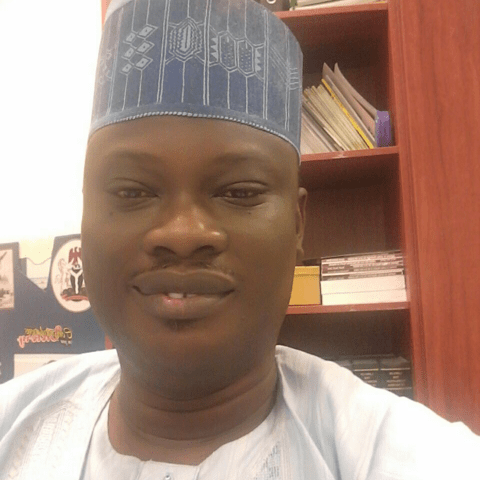
Genocides or mass killings do not just happen. They are usually harbingered by conspiracy theories of ethnic and religious complexions, sentiments, skewed perceptions and assumptions. Are all these ingredients of doom present in today’s Nigeria? Yes, very much so. But it is for this reason that we must not take a day off in pulling our country out of the precipice.
The Rwanda genocide is a familiar example but of which precedent Africans and Nigerians particularly, have refused to learn from. A smorgasbord of the precipitations of the Rwanda genocide bubbles in our country. The cauldron boils, and we are skating soberly into molten magma.
RECONCILIATION
In about 25 years after the genocide, Rwanda has been able to rebuild itself into the lodestar of Africa. It may not be a perfect country yet, but it is a fine example of how ethnic cleavages can be managed by deliberate government interventions.
Rwanda did not ignore or try to blot out the genocide from its history. It embraced its past shining a light into the present from the ruins of a never-to-be forgotten era. The East African country acknowledges till date that sombre episode and holds an annual event in memory of those lost to the violence.
To pour oil on troubled waters and permanently submerge the vestiges of ethnic conflicts, Rwanda launched a robust reconciliation programme and retooled the Rwandan Identity. Being Rwandan was no longer on the basis of whether you are Hutu or Tutsi.
Let me share a note by the UN on the Rwandan reconciliation effort:
‘’The reconciliation process in Rwanda focuses on reconstructing the Rwandan identity, as well as balancing justice, truth and peace and security in the country. Different measures have been taken by the Rwandan government towards achieving the goal of perpetrators and victims living side by side in peace. For example, the Constitution now states that all Rwandans share equal rights. And laws have been passed to fight discrimination and divisive genocide ideology.
Primary responsibility for reconciliation efforts in Rwanda rests with the National Unity and
Reconciliation Commission.’’
Would I be asking for too much if I request that the government make conscious effort at reconciling all Nigerian groups through intended policies – even if it means setting up a Unity Commission with pragmatic targets? I must say, as of now there is no wilful policy or programme by the government to manage our unity.
You cannot seek to suppress epochal outcomes of the past, whether they are negative or positive, in the life of a people and expect to manufacture congenial relationships. When there is suppression, there is resistance. Whatever you seek to suppress will always be given oomph from the underground.
The little annoyances that effectuated the Nigeria-Biafra civil war are still very much a concern. They remain unaddressed largely because a succession of leaderships did not want to walk the wire for Nigerians or take a middle-of-the-road approach to governance. We have had leaderships, with the exception of the Obasanjo administration, who put their ethnic and religious interests at the centre of governance.
We need to address the issue of ‘’ethnic origin and identity?’’ Am I a Nigerian because I am Igbo? Or Am I a Nigerian by virtue of my birth and allegiance to my country? The truth is most ‘’citizens’’ submit to their ethnic nationalities rather than to Nigeria. They derive their identity not from Nigeria but from their ethnic stock. It is the reason some of them can unleash violence on other citizens of different ethnic spectrum if they perceive their ‘’own’’ is violated.
We need to build a Nigerian identity. All ethnic nationalities must surrender their individual identities to a Nigerian identity. Like it is in Rwanda, it can happen in our country.
We must be deliberate about managing our diversity. This is where the leadership is remiss. There is no calculated policy to harmonise ethnic divergences and sensitivities; understand this chasm and forge a strong bridge across all lines.
The recent blockade of food supplies to the south should prick us to reflect on the unhinged compassing of our nation. We are on a delicate bend. Nigeria needs men and women who will rise to the responsibility of leadership and steer it ashore — statesmen and nationalists – men and women who have conquered the lure of ethnic and religious cravings.
I understand the intervention of Yahaya Bello, governor of Kogi state, saved the situation – of what could have snowballed into an ethnic tit-for-tat. Though I learnt another governor was furious with him for intervening in the matter. According to my sources, the obverse governor told Bello that the ‘’south should be allowed to suffer’’.
Really, there are people in high places who live off Nigeria’s ethnic contours. We should starve them of this meal.
We, the Igbo, the Hausa, the Yoruba, the Fulani, the Ijaw, the Esan, the Urhobo – and all other ethnic nationalities — should surrender our ethnic identities to the Nigerian identity. This does not imply abandoning our roots, but embracing an expansive identity for the survival of our country.
We need leadership.
May Nigeria succeed.
Fredrick Nwabufo is a writer and journalist
Twitter @FredrickNwabufo
Follow Us On WhatsApp



